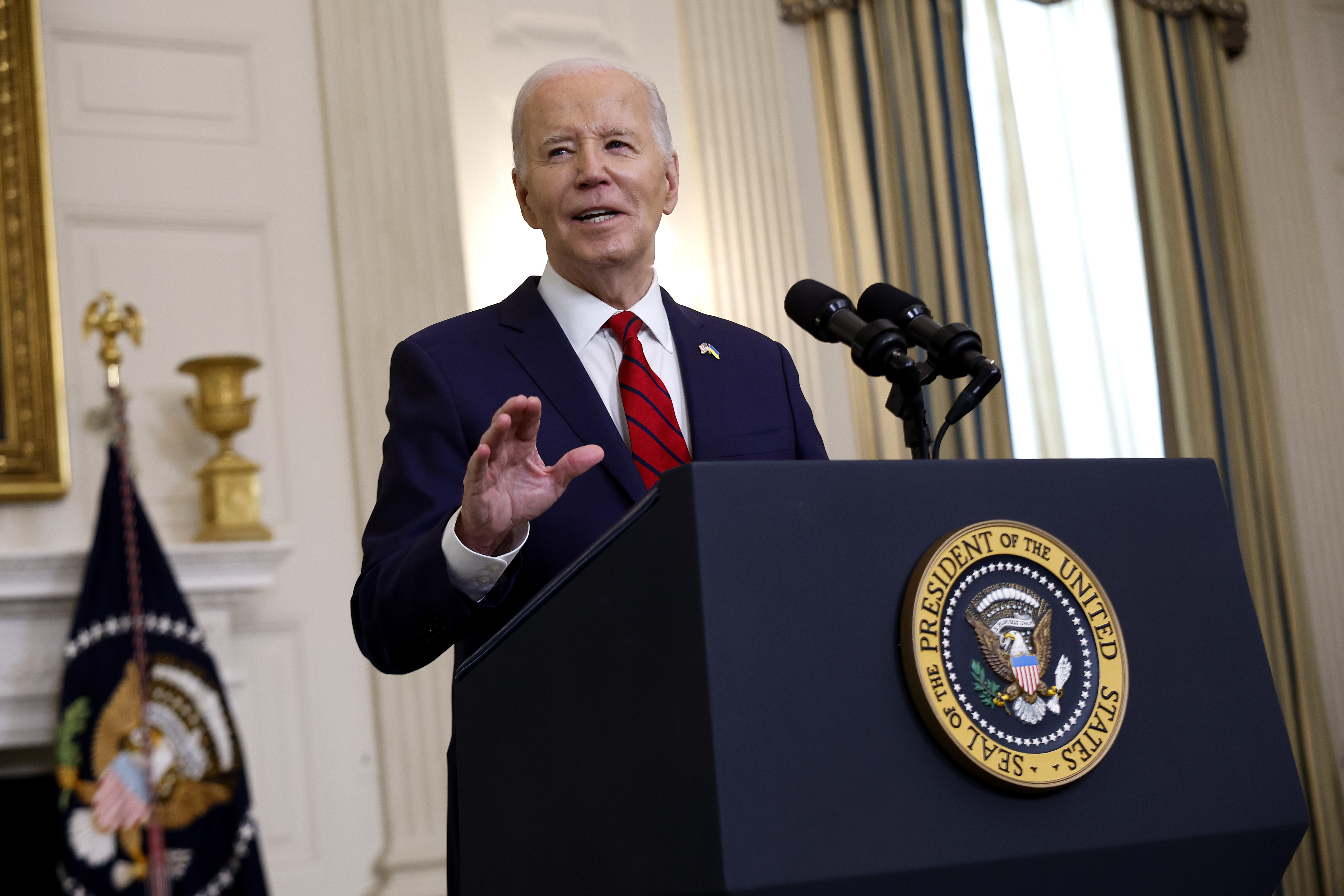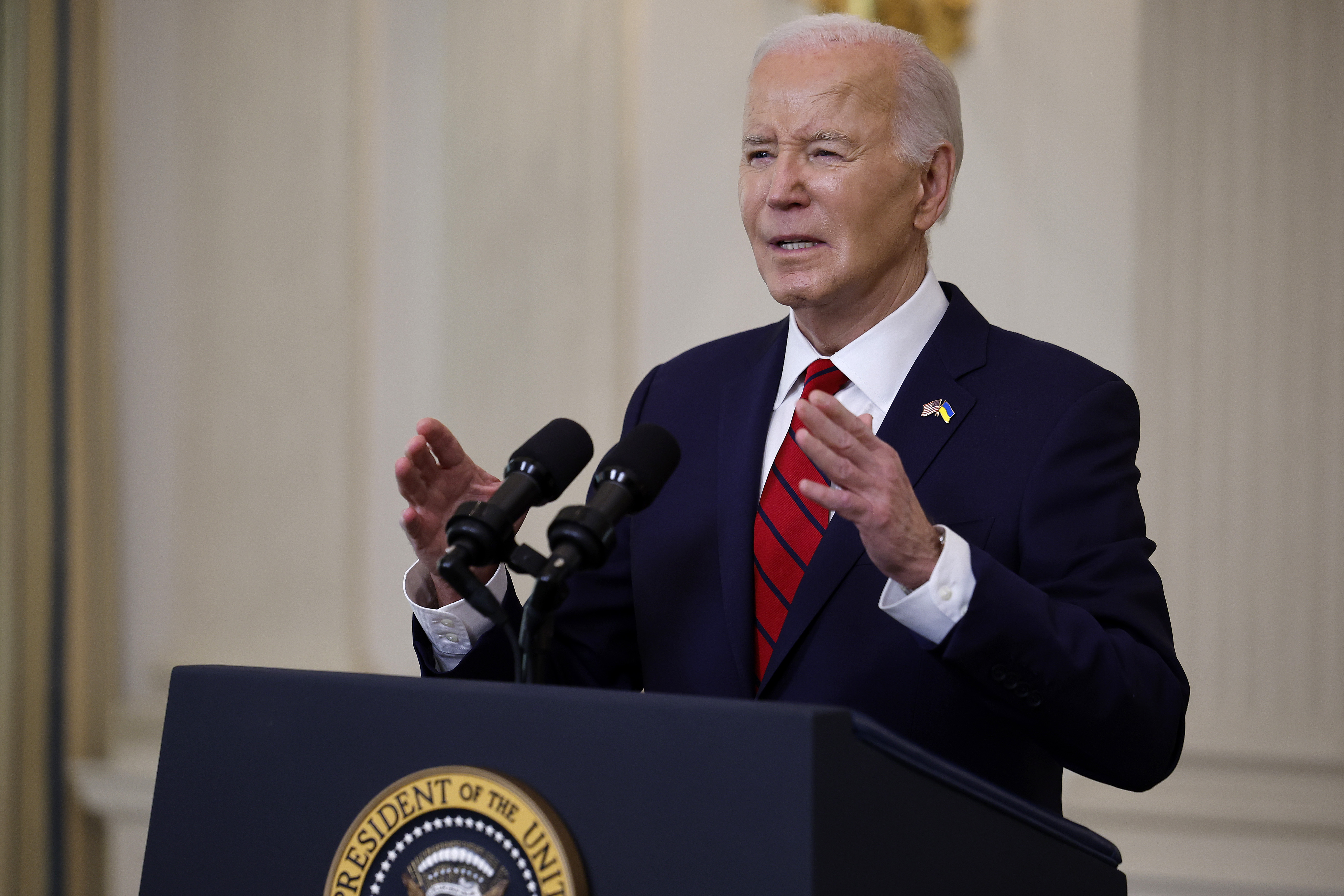Former Gov. Dolph Briscoe Jr., who presided over Texas during the oil and gas boom years before a stunning upset in 1978, died Sunday, according to his family. He was 87.
Briscoe had been hospitalized in poor health in January and had returned home only recently, family spokeswoman Ann Arnold said.
A rancher and a banker, the two-term Democratic governor first elected in 1972 often was praised by friends and supporters for his personal integrity. During his six years as governor, Texas enjoyed increasing oil and gas revenues, and Briscoe kept his campaign pledge of no new taxes.
"The necessity of fiscal responsibility in all levels of government is second only to world peace in our survival," he once said.
Briscoe lost to Attorney General John Hill in the Democratic primary in 1978. Hill lost in the general election to Bill Clements, Texas' first Republican governor since Reconstruction.
As Briscoe departed, he recommended state taxpayers get a $1 billion refund from the $2.8 billion "surplus" at the end of his administration, but the refund never materialized.
Years after the bitterness of the 1978 political campaign wore off, the conservative Democrat still contended he could have defeated Clements. He claimed his conservative supporters were apathetic in his Democratic race with Hill, whom he'd tried to paint as an ultraliberal.
Politics
Politics from around the world.
Briscoe considered a comeback race for governor in 1982, but instead supported Attorney General Mark White, the Democrat who went on to defeat Clements.
After serving as governor, Briscoe turned his attention to his ranch and business operations in south Texas -- where he'd inherited the ranching business from his father, Dolph Briscoe Sr. -- but always remained on the political scene. Not surprising for a man whose great-great grandfather on his mother's side, also named Briscoe, had signed the Texas Declaration of Independence.
"Things get dull at times," Briscoe once said. "I miss it. Sometimes you miss it like you miss somebody hitting you over the head with a hammer, but you still miss it."
Briscoe hosted Hillary Rodham Clinton in 1996 when she made a campaign trip to Uvalde to pick up Briscoe's endorsement for her husband, President Bill Clinton, a week before the Texas primary. Briscoe and the then-first lady drew parallels with the 1948 visit of Bess and Harry Truman, who came calling on former Vice President John Nance Garner in Uvalde.
Briscoe also attended campaign events for Republican Gov. George W. Bush before he was elected president in 2000.
From the time he was valedictorian of the Uvalde High School graduating class in 1939, Briscoe was accustomed to being top man. He was elected to the Texas House from Uvalde in 1949 and served as a legislator for eight years, bragging that he never had an opponent.
After leaving the Legislature, he was designated the state's Outstanding Conservation Rancher, one of the state's five Outstanding Young Texans by the Junior chamber of Commerce and Mr. South Texas. He served as president of the Texas and Southwestern Cattle Raisers Association, the South Texas Chamber of Commerce and the Texas Chamber of Commerce. He also was senior chairman of the board of directors of First State Bank of Uvalde.
In 2008, the University of Texas at Austin named its Center for American History for Briscoe, who donated $15 million to the center.
Briscoe's first bid for the governorship was an unsuccessful one in 1968, when Preston Smith won over nine other Democrats.
He announced for the 1972 Democratic race, immediately hammered opponent Lt. Gov. Ben Barnes for being the presiding Senate officer when the chamber passed two bills involved in the Sharpstown stock fraud scandal, which involved loans allegedly to be made by the Sharpstown State Bank in Houston to top Texas Democrats in return for favorable banking legislation. Those recipients were to buy stock, then redeem the shares at inflated prices. Barnes never faced charges but his career was tarnished by the scandal.
Briscoe easily led the party primary voting, with Frances "Sissy" Farenthold second and Barnes a distant third. Briscoe defeated Farenthold in a hotly contested runoff and nosed out Republican Hank Grover by less than 100,000 votes in November.
Briscoe won re-election in 1974, carrying 247 of 254 counties. He became the state's first four-year chief officer because of a 1975 law changing the governor's term length.
Briscoe was the governor who signed the Texas Open Records Act in the 1970s, now known as the Texas Public Information Act.
Throughout his public career, he refused to reveal his full wealth, filing reports showing only what public officials were required to disclose. But several published accounts cited him as the state's largest landholder, with more than 1 million acres owned or leased. The same reports estimated his worth at more than $50 million.
Briscoe and his wife, Janey, were the 1999 recipients of the John Henry Faulk Award for Civic Virtue presented by The Freedom of Information Foundation of Texas. Janey Briscoe died of heart problems at age 76 in October 2000.
Dolph Briscoe's survivors include a son, Dolph Briscoe III; two daughters, Janey Briscoe Marmion and Cele Briscoe Carpenter; and five grandchildren. Funeral arrangements were pending.
Associated Press Writer Terry Wallace in Dallas contributed to this report.



